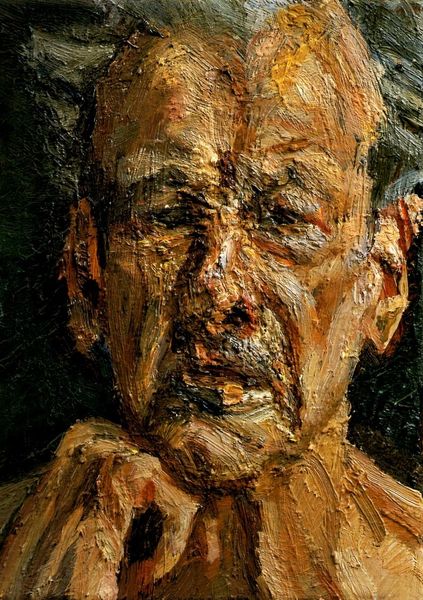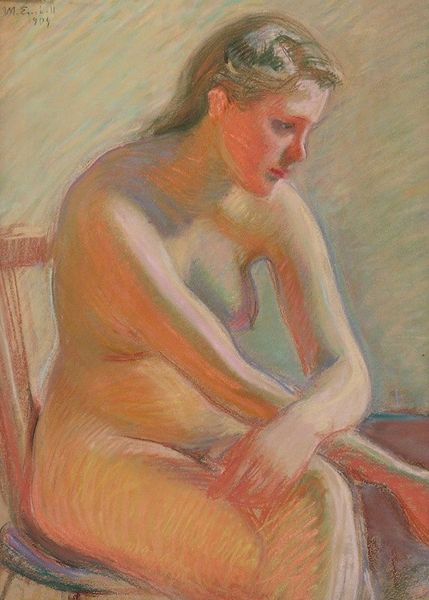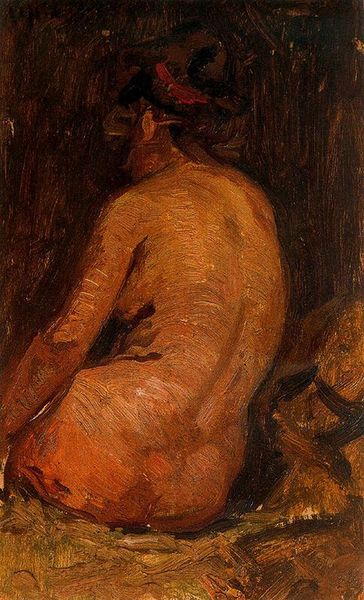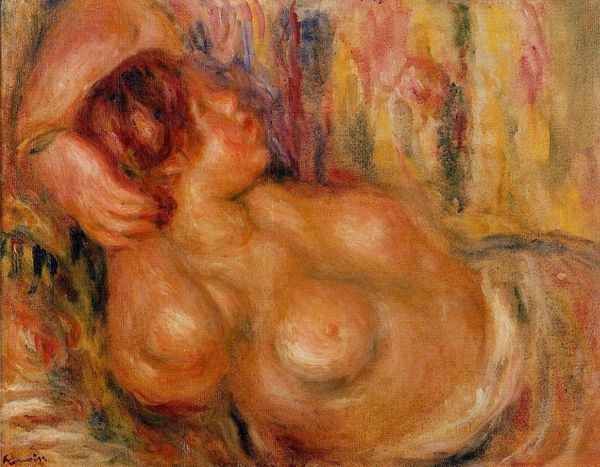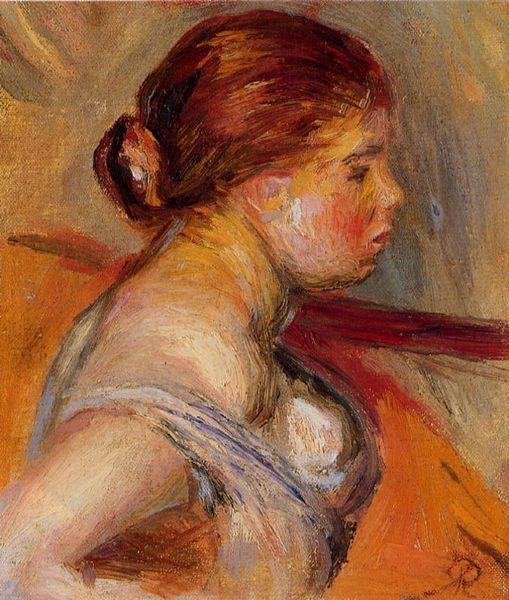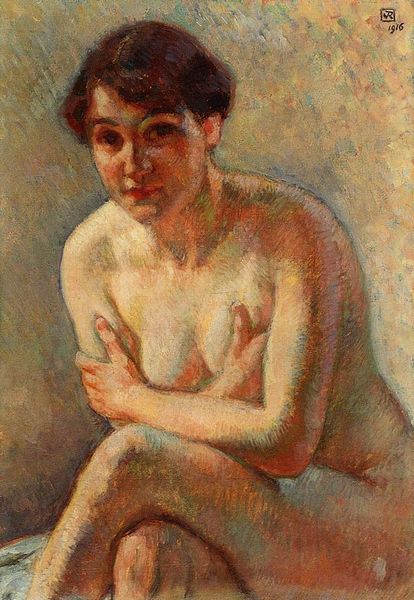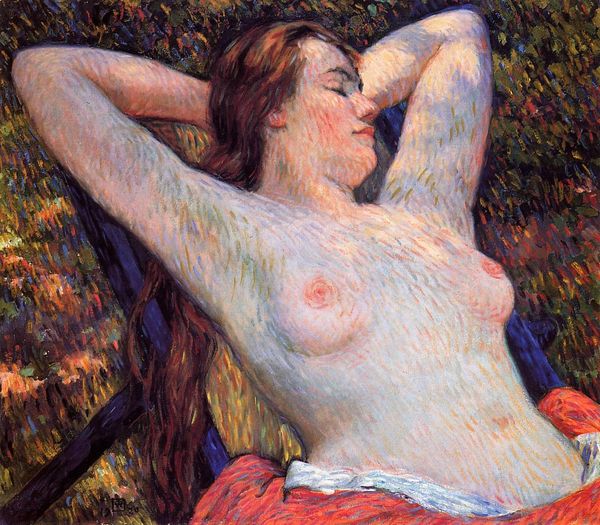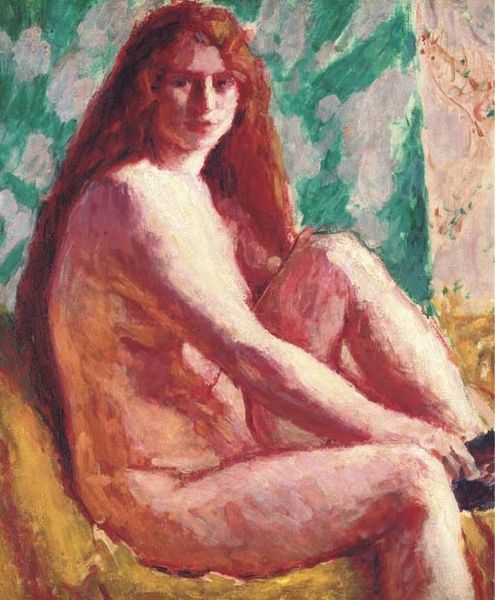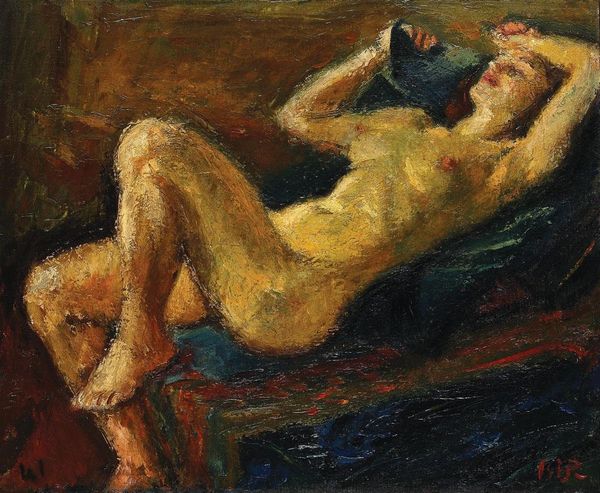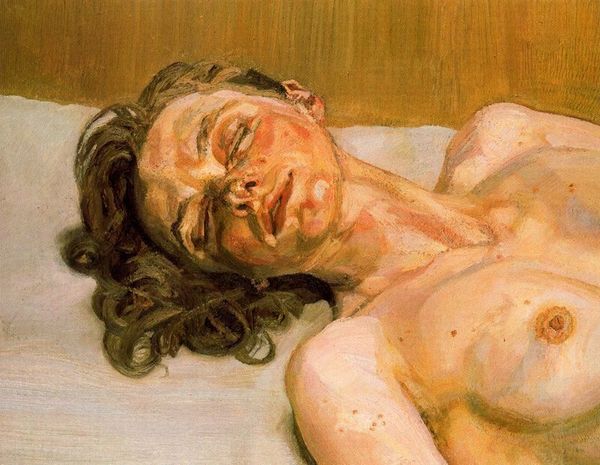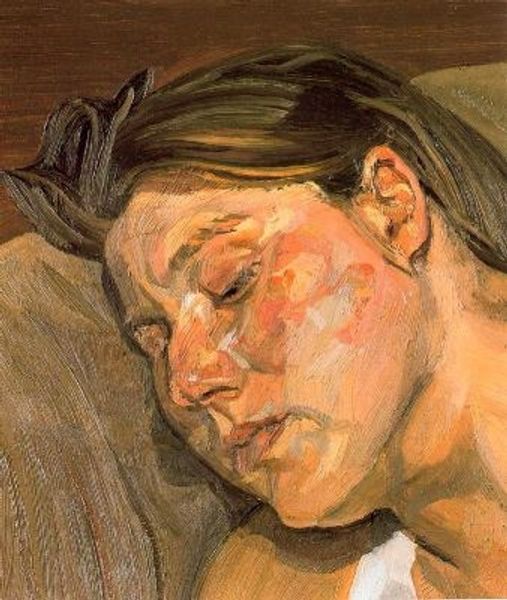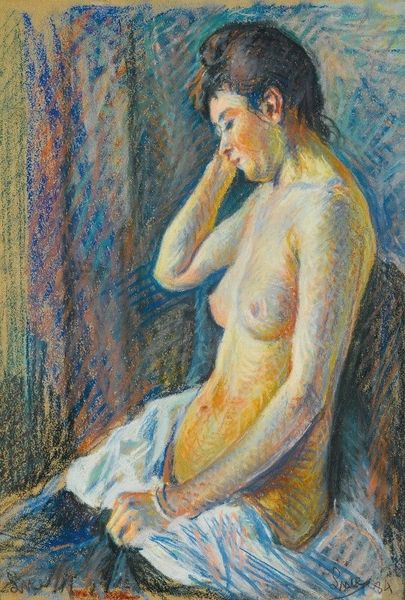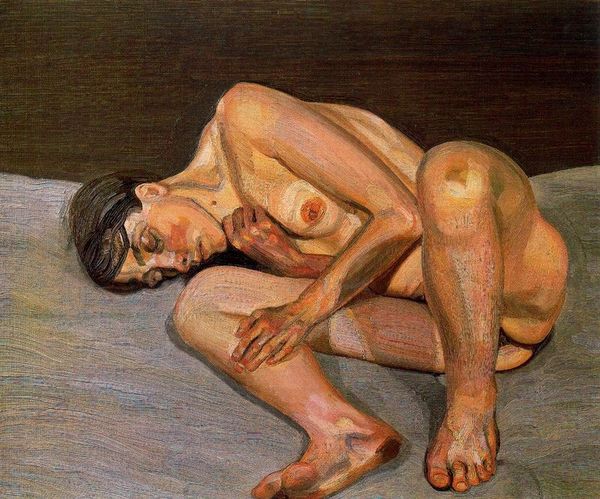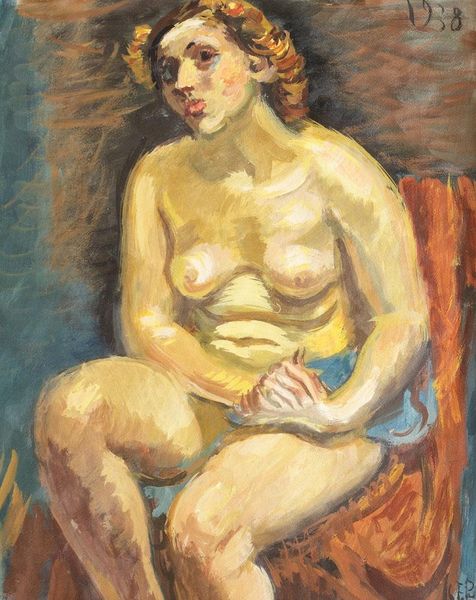
Copyright: Public domain
Curator: Welcome. Today, we’re observing Umberto Boccioni’s "The Mother," created around 1909 using oil paint. Editor: My immediate impression is one of intense warmth, both in terms of color palette and implied emotional temperature. The textural handling feels feverish, alive. Curator: Note how Boccioni uses impasto, building up the paint to create a tactile surface. It reminds me of the emotional intensity frequently given to representations of mothers in art, from the Madonna onward. Editor: It’s the way light fractures across her back and arm that holds my gaze. This near-obsession with the play of light and shadow lends it a fragmented, almost proto-cubist feel. Curator: The turn of her head and the slight downward gaze evoke an internal reflection, maybe a silent communication only felt by mothers. The composition has the intimacy so common within artworks under the thematic lens of intimism. Editor: Yes, her gaze doesn’t meet ours. She’s caught in thought. I detect something melancholic here, perhaps communicated through that restraint. Also the limited colour range helps build towards a quiet harmony of light. Curator: While the pointillist style might appear fragmented at first glance, Boccioni successfully uses the form to create unity of color throughout the piece, evoking her inner complexities and contradictions. Editor: This fractured application of color and line becomes, in effect, her psychological portrait. The painting is more than a likeness. I'm looking into her mind, through Boccioni’s artifice. Curator: And, of course, she might even be Boccioni's own mother, another emotional layer added to the significance of such representation, which could then create an idealized and generalized idea of mothers and maternal affection. Editor: Yes, the image pulses with that ambiguous connection. It’s interesting how form and light conspire to elicit a felt sense from the beholder. Curator: Indeed, a striking piece in how it merges personal observation with more archetypal resonance. Editor: The effect really does endure. Thanks for unpacking it with me.
Comments
No comments
Be the first to comment and join the conversation on the ultimate creative platform.
